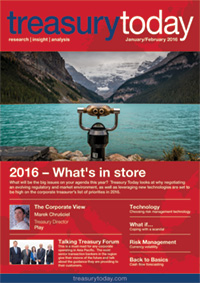A time to reflect…
As we start a new year, the global financial crisis seems like a distant memory – or does it? At the beginning of January 2008, The World Bank predicted global economic growth would slow as the credit crunch hit the richest nations. By mid-January, global stock markets had suffered their biggest falls since the 9/11 attack on the World Trade Centre and the US Fed had slashed rates by three quarters of a percentage point to 3.5% – its biggest cut in 25 years. At the end of the month, major bond insurer, MBIA, announced losses of $2.3bn, blaming its exposure to the US subprime mortgage crisis.
February 2008 also delivered some big-name casualties as news from the US suggested worldwide losses stemming from the collapse of the US subprime mortgage market could reach $400bn. Northern Rock was about to be nationalised and Wall Street’s fifth-largest bank, Bear Stearns, was acquired by its larger rival, J.P. Morgan Chase. As we approached the end of Q1, the IMF warned that potential losses from the credit crunch could reach $1trn, possibly even higher.
RBS soon announced plans to raise money from its shareholders with a £12bn rights issue – the biggest in UK corporate history. This trend was repeated in the following month with Swiss bank UBS, one of the worst affected by the credit crunch, launching a $15.5bn rights issue to cover some of the $37bn it lost on assets linked to US mortgage debt. Barclays announced plans to raise £4.5bn in a share issue and The Qatar Investment Authority, the state-owned investment arm of the Gulf state, announced it was investing £1.7bn in the UK clearer.
In September 2008, Lloyds TSB announced it was taking over HBOS, Washington Mutual closed down and sold to J.P. Morgan Chase, and Fortis was partially nationalised to ensure it survived. As we moved into Q3, Germany announced a €50bn rescue plan to save one of the country’s biggest banks and RBS, Lloyds TSB and HBOS had an injection from the UK government totalling £37bn. But perhaps that’s enough about 2008.
Whilst 2015 hasn’t seen the financial sector change to that extent, the year has certainly been eventful – even without dwelling on the FX fixing and LIBOR rigging scandals. The slowdown in the Chinese economy has been a major headwind. Rolls-Royce, Jaguar Land Rover and luxury brand Burberry are just three companies having to review their contracts with the country as a result.
Volkswagen is the subject of a scandal involving more than 11m vehicles found to be using software which deliberately misreported nitrous oxide emissions. One report has suggested the scandal could cost VW $86bn. TalkTalk and Vtech were victims of cyber-attacks and, as this is written, Paris has just been in the news for very different reasons. The terrorist attacks there, and elsewhere around the globe in 2015, shocked us all and highlighted the continued threat on our lives and businesses.
And as attendees at the UN Climate Change Conference, also in Paris, grapple with the issue and consequences of a two degree rise in temperature, it is only natural to approach the coming year with a slightly sombre outlook. The issues you face every day in your finance and treasury departments are certainly put into perspective.
International relationships around the globe are extremely fragile to say the least and the future is so unpredictable; never before have the stakes been so high on all fronts.
Treasury Today wishes all our readers a happier, more prosperous and safer 2016.


